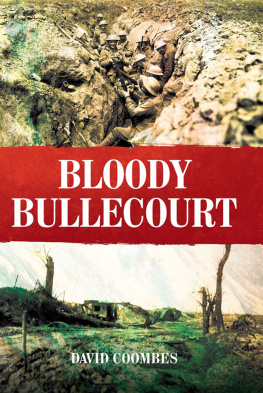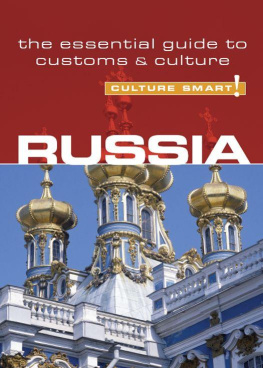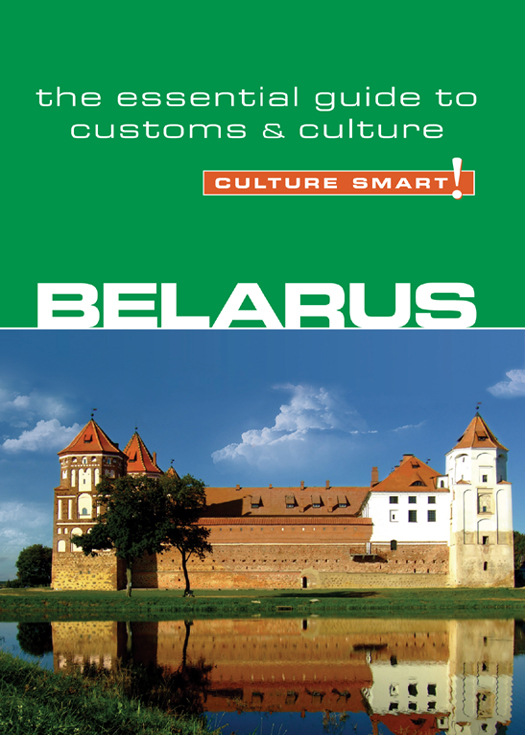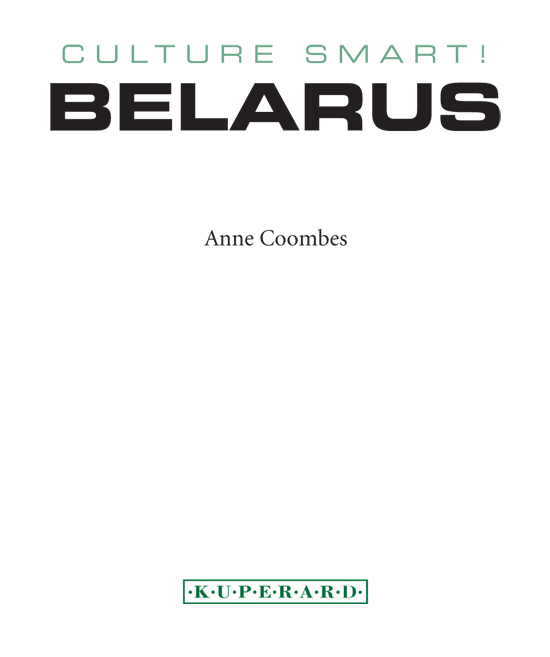First published in Great Britain 2008
by Kuperard, an imprint of Bravo Ltd
59 Hutton Grove, London N12 8DS
Tel: +44 (0) 20 8446 2440 Fax: +44 (0) 20 8446 2441
www.culturesmart.co.uk
Inquiries:
Culture Smart! is a registered trademark of Bravo Ltd
Distributed in the United States and Canada
by Random House Distribution Services
1745 Broadway, New York, NY 10019
Tel: +1 (212) 572-2844 Fax: +1 (212) 572-4961
Inquiries:
Copyright 2008 Kuperard
All rights reserved. No part of this publication may be reprinted or reproduced, stored in a retrieval system, or transmitted in any form or by any means without prior permission in writing from the publishers.
Series Editor Geoffrey Chesler
eISBN: 978-1-85733-617-7
British Library Cataloguing in Publication Data
A CIP catalogue entry for this book is available from the
British Library
Cover image: Castle in Mir. Sleepinsun/Dreamstime.com
Images by courtesy of the author.
Images Viktar Palsciuk.
v3.1
About the Author
ANNE COOMBES edits the English-language editions of Belarusian state publications such as the Minsk Times, Belexport Magazine, and the Foreign Economic Review. She also works as a copy editor for the International Finance Corporation and the United Nations Development Programme in Belarus (IFC is part of the World Bank) in addition to editing the English pages of the Where Minsk city guide. She spent three years in Minsk, where her husband was posted as a diplomat, and now lives in the USA, working as a copywriter and travel journalist.
The Culture Smart! series is continuing to expand.
For further information and latest titles visit
www.culturesmart.co.uk
The publishers would like to thank CultureSmart!Consulting for its help in researching and developing the concept for this series.
CultureSmart!Consulting creates tailor-made seminars and consultancy programs to meet a wide range of corporate, public-sector, and individual needs. Whether delivering courses on multicultural team building in the USA, preparing Chinese engineers for a posting in Europe, training call-center staff in India, or raising the awareness of police forces to the needs of diverse ethnic communities, it provides essential, practical, and powerful skills worldwide to an increasingly international workforce.
For details, visit www.culturesmartconsulting.com
CultureSmart!Consulting and CultureSmart! guides have both contributed to and featured regularly in the weekly travel program Fast Track on BBC World TV.
contents
Map of Belarus
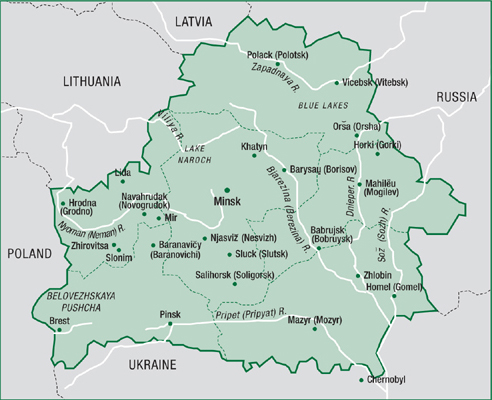
introduction
Belarus has been much in the news in recent years. Its president is widely derided as Europes last dictator and many think of it as a rather backward, insignificant country on the outer edge of our Western world. A stroll through the capital, Minsk, is often said to be like stepping fifty years back in time. Its not hard to imagine Soviet tanks rolling down the main avenue. It is more than just the architecture that harks back to this bygone age, though: try navigating the official bureaucracy, or getting waited on in a shop!
Belarus may have been long under the Russian thumband many of the older generation still feel strong ties to their Soviet Fatherlandbut it is far from being a carbon copy of its neighbor. Centuries of outside rule have bred a form of stoicism that, among older people, borders on fatalism. Nevertheless, the Belarusians have their own quiet pride in their land and the young are passionately patriotic, wanting to carve out an identity separate from Russia. Many traditions are shared with the Russians, but most Minskers would laugh at any comparison to Muscovites, whom they largely regard as materialistic and aggressive. While Moscows culture and power are admired and respected, they are well aware that their Russian cousins consider them provincial.
Belarus occupies a key geographical position on the strategic crossroads from East to West, between Moscow and Warsaw, Vilnius and Kiev. For centuries, armies have trudged across its plains, wreaking destruction. Now, it likes to think of itself as the ideal trade routewhich it might be, were it not for the arcane customs procedures at the border.
Belaruss leadership has hitherto thrown in its lot with Russia; for almost a decade, they have been planning a Union State. However, the relationship has soured in the last couple of years, particularly since Gazprom began charging higher prices for its gas and oil. The president is now making overtures to the EU as never before, and the EU continues to urge him to respect human rights and introduce real democracy. A quick Internet search turns up stories of journalists and political figures who mysteriously disappear, of opposition party members imprisoned on apparently trivial charges, and a hair-raising catalog of alleged human rights abuses.
Regardless of their views on its leadership, few visitors leave Belarus without falling in love with it a little. Their conservative social views may leave something to be desired, but the people are disarmingly friendly, and you cant help admiring their resilience, bravery, and resourcefulness. Come what maySecond World War devastation, Stalins purges, or the cruel post-perestroika yearsthey gird their loins and hang in there. In addition, they are spontaneous, thoughtful toward others, and love a good party. They work their way into your heart.
Pryvita ne! Welcome to Belarus!
Key Facts
| Official Name | Republic of Belarus (Respublika Byelarus) |
| Capital City | Minsk (population 1.8 million) |
| Major Cities | Gomel, Grodno, Mogilev, Brest, and Vitebsk |
| Area | 80,155 sq. miles (207,600 sq. km) | A little smaller than Great Britain |
| Borders | Latvia, Lithuania, Poland, Russia, and Ukraine |
| Climate | Moderately continental, between maritime and continental. | Over the last decades winters have become warmer. |
| Currency | Belarusian ruble (BRb) | Exchange rate US $1 = 2,135 BRb; GB 1 = 4,229 BRb (May 2008) |
| Population | 9,689,700 in 2007 (state statistics) | 47 people per sq. km, with 72% in urban areas |
| Ethnic Distribution | Belarusian 81.2%, Russian 11.4%, Polish 3.9 percent, Ukrainian 2.4%, other 1.1% (1999 census) |
| Language | Belarusian and Russian are the official national languages. |
| Religion | Mainly Eastern Orthodox Christian (80 percent) | Other religions: Roman Catholic, Protestant, Jewish, and Muslim |
| Government | President is Head of State. The National Assembly consists of the Council of the Republic (64 seats; 56 elected by regional councils and 8 appointed by the president) and the Chamber of Representatives (110 seats, elected by universal adult suffrage). |



